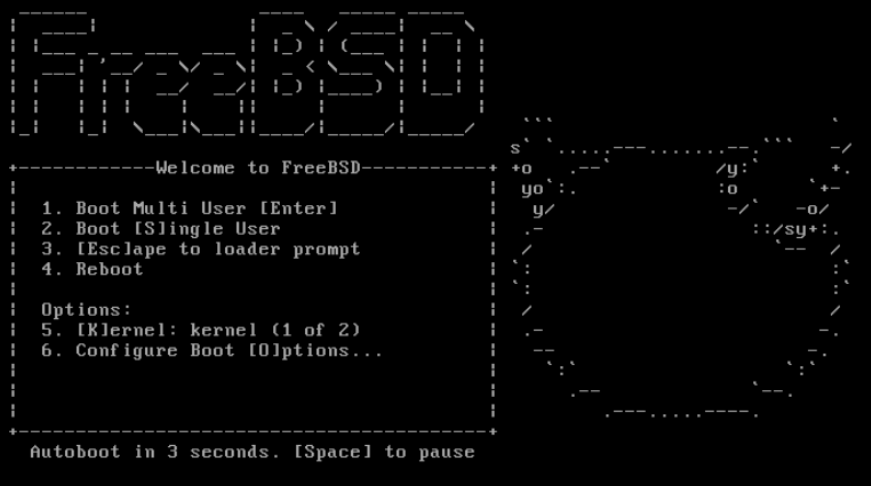Artificial Intelligence is the booming paradigm. Technology has seen a massive and most drastic development in the past few decades. Artificial intelligence has almost made a debut in every object around us. From switchboards to wristwatches, every object has come online, all thanks to the advancing Artificial Intelligence paradigm. Data is the driving force of every business, opportunity, and venture. Artificial Intelligence is the science that has utilized this data and has proven with its inventions that how data can help in taking a paradigm to unimaginable heights.
Here at Ibmi Media, as part of our Server Management Services, we regularly help our Customers to perform related Artificial Intelligence Software queries.
In this context, we shall look into the best Artificial Intelligence software solutions.
1. Deeplearning4j
Deeplearning4j is an open-source, industrial grade, plug-and-play, and a distributed deep-learning library for Scala and Java programming languages. The library is particularly designed and created to provide services and solutions to business-related applications. Though it does not mean that the vast and enhanced library cannot be adapted for other Artificial Intelligence-based software solutions. Deeplearning4j comes integrated with Spark and Hadoop with distributed GPUs and CPUs.
Deeplearning4j comes under the Apache 2.0 license and the library provides GPU support for scaling on AWS and is adapted for micro-service architecture.
Get more details now from https://deeplearning4j.org/
2. Caffe
Developed by Berkeley AI Research (BAIR) and by enhanced community support, Caffe is a deep learning framework that was designed to serve speed, modularity, and expression concerns. Caffe is a renowned modular and expressive deep learning framework. Released under the BSD 2-Clause license, Caffe enables programmers with its efficient and expressive architecture, extensible code, speed, and vast and active community of developers. Caffe has been adapted to develop many community projects, startup prototypes, industrial applications around the globe.
Access it now from https://github.com/BVLC/caffe
3. H2O.ai
H2O.ai is a fast, scalable, open-source, and distributed artificial intelligence framework. The framework supports a collection of algorithms that allow the creation of intuitive and most efficient artificial intelligence applications and software solutions. H2O.ai enables programmers to develop smart applications utilizing deep learning, random forests, gradient boosting, logistic regression, elastic net, generalized linear modeling, and many such more enhanced list of artificial intelligence algorithms.
With H2O.ai, the developers and decision-makers are able to make better predictions and perform analytics on their data utilizing the most enhanced and advanced predictive modeling mechanism provided in the framework.
Start a free trial now from https://www.h2o.ai/freetrial/
4. Apache Spark MLlib
Developed by the software development solutions and information technology giants, Apache, MLlib is the product of Apache Spark and comes equipped with the best toolset required to make efficient artificial intelligence-based applications and software solutions. MLlib is an open-source, most intuitive and user-friendly, efficient, and most stable machine learning library. The framework was specifically designed for deploying and can run on existing Hadoop clusters and data.
Get it now from https://spark.apache.org/downloads.html
5. Apache Mahout
Another open-source and efficient artificial intelligence framework by Apache software giants, Mahout provides the machine learning algorithms to build efficient and scalable artificial intelligence software solutions and applications. Mahout provides a simple, intuitive, and extendable programming workplace to its developers. It comes equipped with algorithms for Apache Spark, Apache Flink, H20 as well as Scala. The Apache framework also supports Samaras which is a vector math experimentation workplace supporting R-like syntax.
Get it now from https://mahout.apache.org/general/downloads
6. openNN
Written in C++, OpenNN is one of the most powerful artificial intelligence frameworks out there. The free and open-source platform is highly recommended and heavily adapted for designing deep learning software solutions. OpenNN is mainly utilized to activate and adapt neural networks. Though the paradigm can only be used by C++ developers and experienced machine and artificial intelligence experts, it is a very powerful and highly adopted artificial intelligence framework. Owing to the platform’s characterized deep architecture, it ensures and guarantees ultimate high performance.
Get it now from https://github.com/Artelnics/OpenNN
7. Oryx 2
Continuation of the renowned initial Oryx project, the Oryx 2 is enhanced production of the efficient Oryx platform. Oryx is again another product by the Apache experts. Apache Spark and Apache Kafka have built a product that enhances machine learning and deep learning development experience where the experts have jointly worked on re-architecting the lambda architecture. With Oryx 2, developers are able to perform real-time machine learning development experiences. The platform ships in with certain applications as well for cooperative classification, regression, filtering, and clustering purposes.
Get it now from https://github.com/OryxProject/oryx/releases
8. OpenCyc
OpenCyc is an open-source portal to the largest and most comprehensive general knowledge base and commonsense reasoning engine of the world. It includes many Cyc terms assembled in a specifically designed ontology for applications in areas such as rich domain-specific expert systems, domain modeling text understanding, AI games plus, semantic data integration and the list goes on.
Register an account now on https://cyc.com/login/?redirect_to=https://cyc.com/documentation
9. SystemDS
SystemDS is an open-source artificial intelligence platform for machine learning and deep learning paradigms and is renowned for supporting big data. Its main features are its capabilities to run on Python-like and R syntax, focused on big data, and designed specifically for high-level math. How it works is well explained on the homepage, including a video demonstration for a clear illustration. There are several ways to use it involving Apache Hadoop, Apache Spark, Jupyter, and Apache Zeppelin. Some of its notable use cases include support and application development environment for designing airport traffic, automotive and social banking software solutions.
Get it now from https://systemds.apache.org/download.html
10. Numenta
Numenta is an efficient open-source artificial intelligence framework for developing and designing machine learning that is based on the neocortex theory, i.e., Hierarchical Temporary Memory (HTM). Integrated with Numenta, the HTM program is designed to assess, analyze and calculate real-time streaming data that is able to predict the impending values along with identifying any irregularities. Also, the platform learns time-based patterns existing in data in parallel. Some of the significant features of the framework include temporal and spatial patterns, real-time streaming data, continuous online learning, prediction and modeling, hierarchical temporal memory powerful anomaly detection, and the list goes on.
Get more details about licensing now from https://numenta.com/
[Need help in Installing Open Source Software on your System ? We can help you. ]
Conclusion
This article covers the best open-source artificial intelligence development frameworks currently available such as Deeplearning4j, Caffe, H2O.ai, Apache Spark MLlib, Apache Mahout, openNN, Oryx 2, OpenCyc, System DS, and Numenta which work best on Linux and other operating systems as well. Artificial Intelligence has surrounded us. From university projects to the key software solutions being developed in the software companies, everyone aims at acing the new paradigm. Machine learning, deep learning, and data sciences are hot topics in the world of software engineering, computer engineering, and information technology.
This article covers the best open-source artificial intelligence development frameworks currently available such as Deeplearning4j, Caffe, H2O.ai, Apache Spark MLlib, Apache Mahout, openNN, Oryx 2, OpenCyc, System DS, and Numenta which work best on Linux and other operating systems as well. Artificial Intelligence has surrounded us. From university projects to the key software solutions being developed in the software companies, everyone aims at acing the new paradigm. Machine learning, deep learning, and data sciences are hot topics in the world of software engineering, computer engineering, and information technology.














